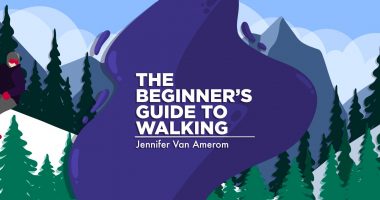Challenging Assumptions About What It Means to Be Disabled

Words can hurt, especially labels. We can deny a label all we want, but terms like “disabled” will close many doors.
What does it mean to be disabled, though? I find the term offensive because it implies I’m not capable, which is far from the truth.
Do I live with neuromyelitis optica (NMO), a rare autoimmune disorder that causes constant pain? Yes, but I’ve built a pain tolerance so I can still live my life.
Do I feel like my condition affects my lifestyle? Absolutely, but I’ve made adjustments so I can still be a contributing member of society.
Do I have a decent quality of life? If you follow me on Instagram, it’s pretty clear that I’m making the best of things, every chance I get.
Tough terminology
My biggest gripe with the term “disabled” is how, for some, it conjures imagery of people who are incapacitated and a drain on society. The term puts us all in the same category, regardless of our physical and mental abilities, and that’s definitely discriminatory behavior.
The same goes for “handicapped.” It tends to conjure imagery of old, sick people who are, of course, always in a wheelchair. Our bodies deteriorate with age, but illness can affect the young while strength can still be enjoyed later in life.
I believe many don’t understand what these terms really mean.
Ignorant attitudes
Case in point, I have a disabled parking permit, which I only use when I need it. I’ve had NMO for almost 13 years, and on tough days I suffer from symptoms like fatigue or my legs feeling like lead. Parking closer to the building allows me to conserve energy, which I desperately need on tough days.
Yet the icon for an accessible parking spot is a wheelchair. Sometimes I use a cane or other walking aid, but not always. On days when I’m not using an aid, I’ve been yelled at, called a fraud, accused of stealing a grandparent’s parking permit, and been threatened to have the cops called on me. People have taken photos of me and my license plate, which are probably circulating on social media alongside some salty name-calling. On all those occasions, I was just trying to pick up groceries, meet a friend for a coffee, or go on a movie date with my husband.
Can I really be upset with these people when the disability symbol is a wheelchair and I don’t have one? I’ve used a wheelchair in the past; at one point I had to relearn how to walk. But there’s no easy way to explain that to angry passersby.
Ableism
When someone writes off those with physical or mental challenges, believing they are unable to contribute to society in any meaningful way, that’s ableism.
While not all ableists holler at complete strangers, it’s important we ask ourselves if we’ve ever made an assumption about a disabled person’s capabilities.
Don’t be embarrassed if you have. Even within the disability community, we can make assumptions. I once wrongly assumed that my friend, another NMO patient with a visual impairment, wouldn’t be able to ski. She proved me wrong, skiing alongside a guide who spoke to her while we went down the mountain. It’s worth mentioning that she’s now a brilliant snowboarder and a successful chef and restaurateur.
Uncomfortable shout-outs
It’s especially awkward to explain how I can be both capable and disabled. I’m often met with disbelief and praise. “I had no idea! You’re so brave! How do you make it look so easy?!”
I know I’m expected to act humbled and gracious in these situations, but I’m secretly annoyed that yet another person is applauding me for “overcoming” my disability. I’m facing an ableist who has likely written off many disabled people.
I want others to understand that I’m living my life like everyone else. My disability doesn’t define me; rather, it’s just one part of me.
Redefining disabled
Change is hard. That’s why I tend to shy away from the term “disabled.” I’m not embarrassed by my truth, but I don’t want to be the poster child for disability, constantly educating ableists about their wrong assumptions.
Every disabled person I’ve met has been incredibly capable. Subconsciously, I think most of us have a point to prove, so we find big ways to contribute to society.
And while it’s painful to admit, most of us have lost fellow patients. In their honor, our community lives life to the fullest every day. While our grief and fears sometimes go unspoken, we hold a great appreciation for life.
I hope for a future where we might redefine disability or even get rid of the term altogether. We all face challenges in life — some of us simply need better parking.
Note: Neuromyelitis News is strictly a news and information website about the disease. It does not provide medical advice, diagnosis, or treatment. This content is not intended to be a substitute for professional medical advice, diagnosis, or treatment. Always seek the advice of your physician or other qualified health providers with any questions you may have regarding a medical condition. Never disregard professional medical advice or delay in seeking it because of something you have read on this website. The opinions expressed in this column are not those of Neuromyelitis News or its parent company, Bionews, and are intended to spark discussion about issues pertaining to neuromyelitis optica spectrum disorder (NMOSD).







Comments
Sandra Adda
As I was reading this all I could say was “yes! yes! yes!
I so resonate with this friend thank you for being so transparent and REAL. I always resonated with you!
Hope you’re feeling a Features doing wonderful!!
Xx , Sandra
Sharon Campbell
Those of us who were born with or acquired our disabilities mostly proudly use the term. Only by using the term proudly will we be able to rid the word of stigma. We all just live our lives with what we have to deal with.
I think most of us learned to ignore the jerks who give us grief over the handicapped parking spaces, too. It is hard, though, and not always possible. The nice thing to remember is that people who don't die young of trauma WILL acquire disabilities, and then they will hate themselves too. Or maybe find themselves on the receiving end of the treatment they have been dishing out.
Thanks for a good essay.
Jennifer van Amerom
Hi Sharon. You're right that those of us who are disabled should use the term proudly, however, we have no control over the perception from others. That's really the big challenge for the disabled community to overcome. How might we do this? Like other forms of discrimination, we need all voices, not just ours, recognizing the need for change.
Hi Camille. Thanks for your comment. I've heard the term "differently abled" before, too. I really like the term as it removes the negative connotation of a disadvantage. I'm sure you were a great support to your student.
Camille Marten
I had a wheel chair bound kindergarten student in my class many years ago. The term “differently abled” was suggested as a way to refer to her. An interesting idea. She was very intelligent, moved around with easy and had a great sense of humor.
Marc Macintyre
Hi there Jen. You are spot on. Great article.